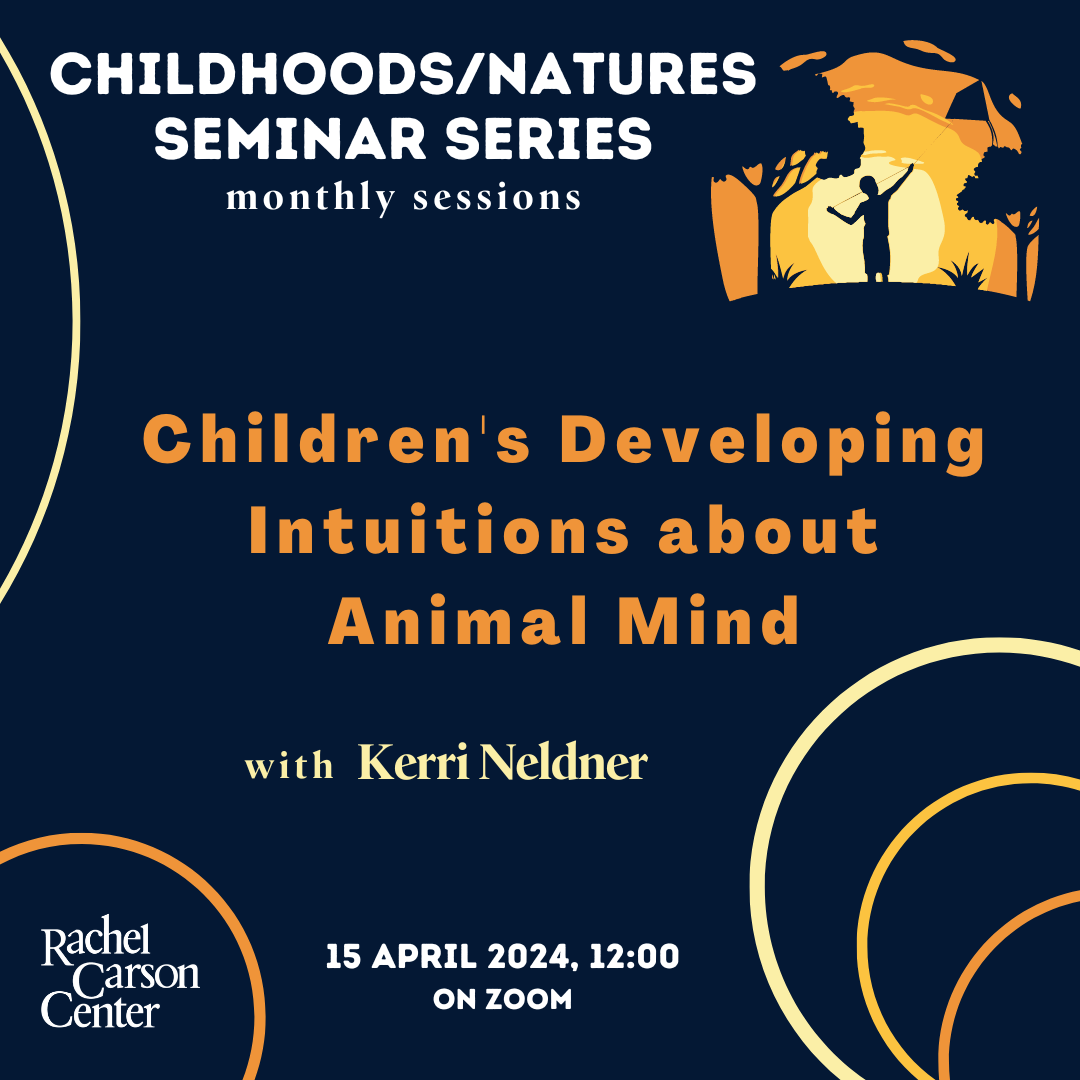“Children's Developing Intuitions about Animal Mind” with Kerri Neldner
Childhoods/Natures Seminar Series
15.04.2024 at 12:00
The Childhoods/Natures Seminar Series is an online monthly event that hosts academics from across the globe and from a wide range of disciplinary backgrounds to speak about their research on childhoods, children-nature relationships, and child development. Organized by the research group LearningNatures based at the Rachel Carson Center, it offers a space to think about and discuss childhoods and child-nature relationships across disciplinary boundaries.
In this April session, participants will be joined by social anthropologist Dr. Karri Neldner (University of Western Australia, Max Planck Institute for Evolutionary Anthropology), who will present on “Children's Developing Intuitions about Animal Mind.”
PLEASE NOTE: The semimar had been postponed due to illness. It will take place at a later date.
Our speaker will be Dr. Karri Neldner, a cross-cultural and developmental psychologist currently at the University of Western Australia and affiliated with the Max Planck Institute for Evolutionary Anthropology. She recently worked at the University of Leipzig on the large-scale “Children and Nature Project” project in psychology led by Prof. Katja Liebal and Prof. Daniel Haun. The talk presents some of the outcomes from that project, which is ongoing:
Adults tend to grant animals the capacity to feel basic emotions, but deny them complex cognition and sophisticated emotions (Haslam et al., 2008). However, we know little about when and how children consider the mental experience of animals. To gain a cross-cultural perspective, we examined children’s folk theories of animal mind across 13 countries: China, Colombia, Ecuador, Germany, India, Indonesia, Italy, Japan, Namibia, Peru, Switzerland, Syria, and Turkey. We asked children whether animals have thoughts and feelings, and how similar they think these thoughts and feelings are to the way humans experience them. Results reveal that, while cultural variation exists in the proportion of children willing to grant thoughts and feelings to animals, children in all communities were more likely to assign capacities ‘to feel’ to animals, over capacities ‘for thought.’ Similarly, children consistently consider animal thoughts as dissimilar to human thoughts. We consider these results in terms of human tendencies to distinguish human mental experience from that of other animals.
The seminar will be held virtually on Zoom.


